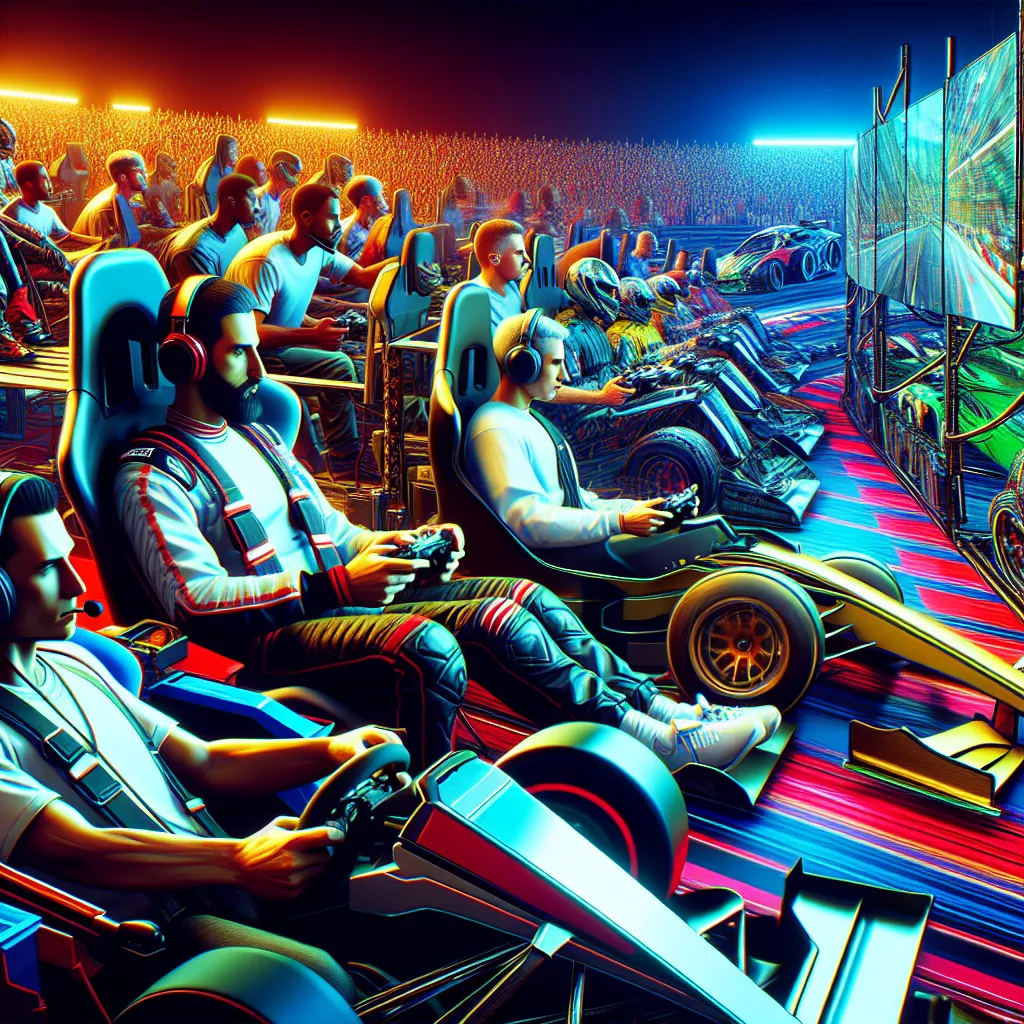The Evolution of Esports Racing: From Niche Hobby to Global Phenomenon
Esports racing, once a niche hobby for a select group of enthusiasts, has evolved into a global phenomenon that has captured the attention of a wide audience. The rise of esports racing can be attributed to several factors, including the advancement of gaming technology, the popularity of racing games, and the increasing accessibility of high-speed internet connections.
With the development of realistic racing simulators and virtual reality technology, esports racing has become more immersive and engaging than ever before. Players can experience the thrill of racing on iconic tracks around the world from the comfort of their own homes. This level of realism has contributed to the growing appeal of esports racing, attracting both casual gamers and dedicated racing fans.
Esports racing has also gained traction due to the rise of organized competitions and professional leagues. Major esports events featuring racing games have drawn large audiences and have even been broadcast on television networks. The competitive nature of esports racing, coupled with the skill and strategy required to succeed, has captured the interest of sponsors and investors, further fueling its growth.
As a result, esports racing has transcended its status as a niche hobby and has become a thriving industry with a global following. It has provided opportunities for professional gamers to showcase their talents, compete for substantial prize pools, and gain recognition on an international stage. The evolution of esports racing from a niche hobby to a global phenomenon demonstrates the significant impact it has had on the gaming and racing communities, solidifying its position as a prominent form of virtual competition.
Exploring the Impact of Esports Racing on Traditional Motorsports
Esports racing, the virtual competition on the track, has been rapidly gaining popularity in recent years. This rise has brought about a significant impact on traditional motorsports, exploring new opportunities and challenges for the industry. The emergence of esports racing as a competitive and spectator sport has introduced a new dynamic to the world of motorsports, attracting a younger and digitally-savvy audience.
One of the key impacts of esports racing on traditional motorsports is the expansion of the fan base. Esports racing has the potential to reach a global audience through online streaming platforms, social media, and dedicated esports channels. This has allowed traditional motorsports to engage with a broader demographic and provide new avenues for fan interaction and participation.
Furthermore, esports racing has provided a platform for aspiring racers to showcase their talents and skills. Many professional racing teams and organizations have incorporated esports racing into their talent development programs, creating a pathway for virtual racers to transition into real-world racing competitions. This convergence of virtual and real-world racing has blurred the lines between the two, leading to cross-promotional opportunities and collaborations.
Moreover, the accessibility and affordability of esports racing have made it more inclusive than traditional motorsports. With the rise of realistic racing simulators and virtual reality technology, enthusiasts can experience the thrill of racing from the comfort of their homes. This has democratized the sport, allowing individuals with limited resources to participate and compete on a global stage.
In conclusion, esports racing has undeniably made a significant impact on traditional motorsports, revolutionizing the way fans engage with the sport and providing new opportunities for aspiring racers. The convergence of virtual and real-world racing has led to exciting developments and collaborations, shaping the future of motorsports as a whole.
The Future of Esports Racing: Innovations and Challenges
Esports racing, also known as virtual racing or sim racing, has been experiencing a significant rise in popularity in recent years, with a growing number of enthusiasts and professional racers engaging in virtual competitions on the track. As technology continues to advance, the future of esports racing is poised to bring about a new wave of innovations and challenges to the world of motorsport.
One of the key innovations shaping the future of esports racing is the development of advanced simulators and virtual reality technology. These innovations aim to provide a more immersive and realistic racing experience for both competitors and spectators. Cutting-edge simulators can replicate the sensation of driving a real race car, with accurate feedback and realistic physics, creating a more authentic experience for virtual racers.
Another significant development in esports racing is the integration of machine learning and artificial intelligence to enhance the realism and competitiveness of virtual racing. This includes the implementation of AI opponents that can adapt to the racing strategies of human players, providing a more challenging and dynamic gaming experience. Additionally, machine learning algorithms can be used to analyze and improve virtual racing performance, offering valuable insights for both amateur and professional racers.
While the future of esports racing is filled with exciting technological advancements, it also brings forth a set of challenges that must be addressed. One of the primary challenges is ensuring the integrity and fairness of virtual competitions. As esports racing continues to gain prominence, maintaining a level playing field and preventing cheating and dishonest behavior will be crucial for the credibility and growth of the sport.
Furthermore, esports racing faces the challenge of bridging the gap between virtual and real-world racing. As virtual racing becomes more sophisticated, the line between the two realms may become increasingly blurred, raising questions about the potential impact of esports racing on traditional motorsport and the way fans engage with the sport.
In conclusion, the future of esports racing holds great promise, driven by technological innovations that aim to elevate the virtual racing experience to new heights. However, overcoming challenges related to fairness and the integration of virtual racing into the broader motorsport landscape will be essential in realizing the full potential of esports racing.

